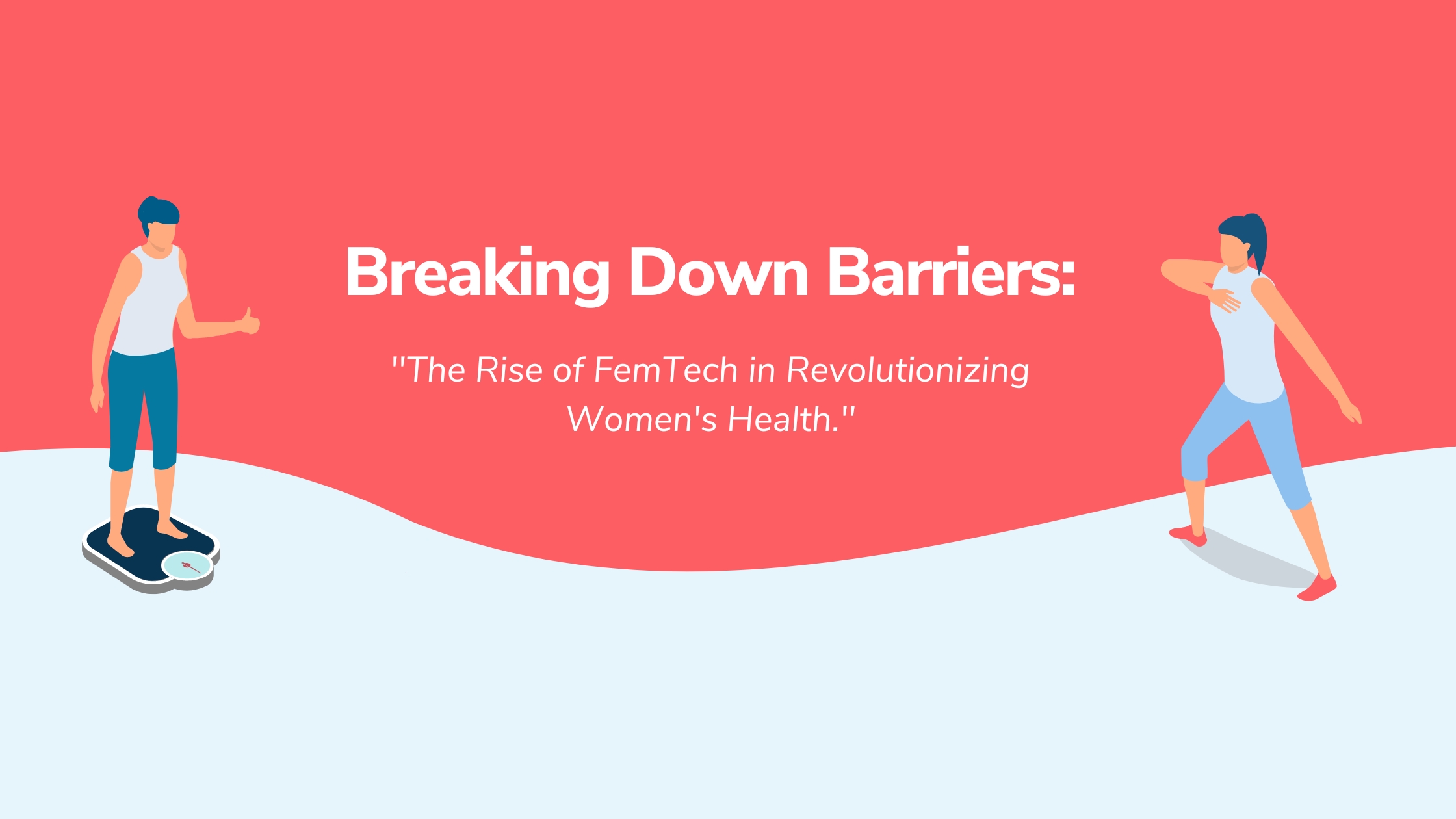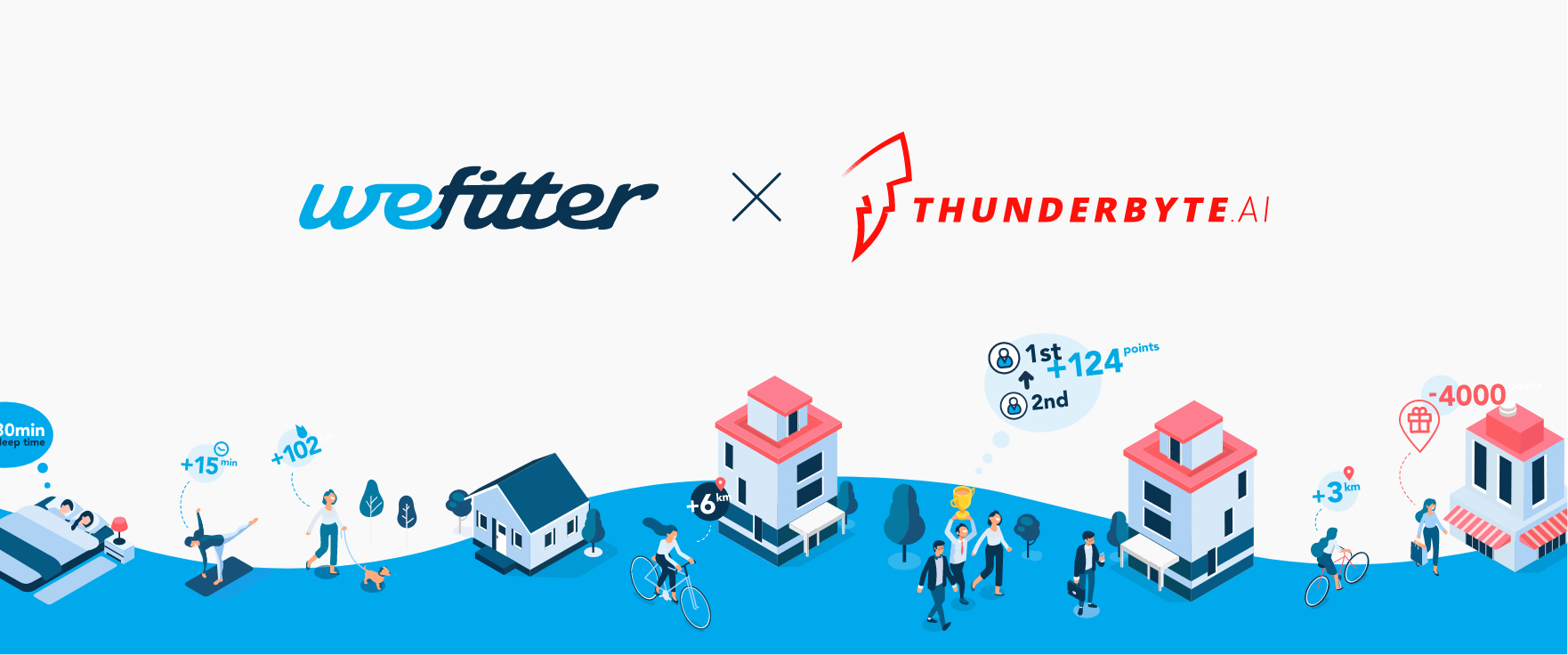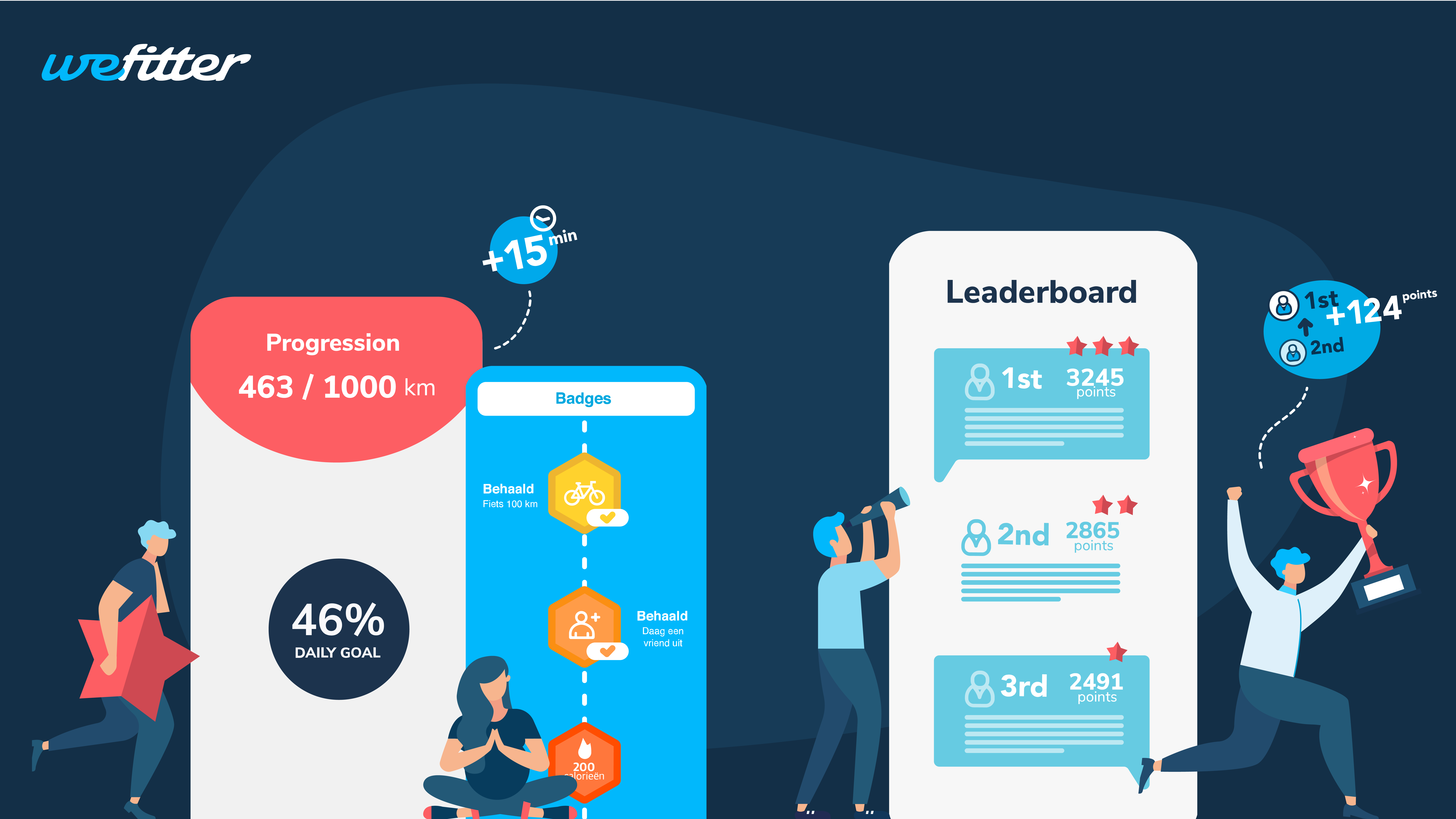
Breaking Down Barriers: The Rise of FemTech in Revolutionizing Women's Health
Breaking Down Barriers: The Rise of FemTech in Revolutionizing Women's Health
What is the definition of FemTech and why is it important in addressing women's health issues?
FemTech, short for female technology, is an emerging market within the eHealth sector focusing on women's health. Examples include software, self-diagnostics, products or services .Knowledge about the health of the female gender lags far behind the knowledge doctors have about that of the male gender. Femtech may be offering a solution for this; FemTech gives women more control and insights in their health and tries to make this difference smaller. And also when fighting taboos, such as shame around the menstruation or ignorance about menopause, FemTech can be the solution.
Which health issues are women facing?
FemTech offers a wide range of solutions to improve women's health care for a number of women-specific conditions. A large number of the health problems women face are hormone-related. For example, women experience many problems during/due to their periods or menopause. Women also experience twice as many mental health problems as men and are also twice as likely to be diagnosed with depression. During pregnancy, many things change within a woman's body that affect her health. Consider hypertension or anemia due to iron deficiency. More and more wearables are being introduced to the market that can help women with the problems mentioned above. The evie ring, which will be released later in 2023, offers multiple features that can help women track their periods and regulate their health. Bellabeat sells a wearable specifically designed for women; the Ivy health tracker. This bracelet correlates data about the menstrual cycle, lifestyle and biometric data.
Is there a lack of research and funding for women's health issues? What has already been done to address these challenges?
There is a relative lack of knowledge about the female body and about women-specific coditions. The reason for this lack is that there is little to no consideration of the characteristics of the female body. Medicine is focused on the avarage man and that means, therefore, that most studies only examine the male gender. These results are also used for female health issues, whikle a man's biological body differs from a woman's biological body in many different ways. Still , these results are often used as the norm, which leads to misdiagnosis for women. One of the reasons the male body is used as a starting point is because the female body is complicated by the hormonal cycle. This would make it difficult to examine.
A petition has been started in the Netherlands asking for more research into women's health complaints that are cycle- and hormone-related, and to establish more specialist centers with doctors specifically trained to do so. The goal is for women to be better diagnosed and treated. This petition has been signed more that 55,000 times by now!
The United States wants to see change as well: the National Institutes of Health, NIH, has indicated that everyone who receives a research grant must now include gender as a biological variable in their research.
Financial changes are also needed. Investors are mostly men and that ensures that there is generally not much investment in women-led companies. In 2020, women-led startups received only 2,3% of VC Funding ( Harvard Business Review). Cultural norms play a role in funding FemTech companies as well. Some men, although cultural norms around gender have evolved, still prefer not to talk about topics such as menstruation, pregnancy, childbirth or menopause. So one can conclude that there is a lack of research and funding for women's health issues.
The rise of FemTech and the impact on the health sector
FemTech is a fast-growing market and is attracting the attention of investors worldwide. The global FemTech market waas valued at $55,14 billion in 2022 and is expected to reach $103 billion by 2030 with a CAGR of 8,1% between 2022 and 2030 (Statista).
The term Femtech was coined bij Ida Tin, the co-founder of the app Clue. This is an app where you can track your menstrual cycle. Clue uses users' data to provide them with predictions about their cycle. The app currently has 11 million monthly active users.
In addition to Clue, there are many other FemTech companies, including Grace Health. This company contributes to the HealthTech sector with their digital health clinic. When using the app, users van track their menstrual cycle. They can chat with a medical expert or fertility coach about specific health needs as well. There are currently 1.3 milliojn registered users.
Hertility Health sells at-home hormone and fertility tests. These tests help you better understand your hormones and fertility. Additionally, you can book virtual consultations with clinicians, such as fertility doctor or an endometriosis specialist.
To make health data as reliable as possible, wearables are a useful tool. Our WeFitter API makes collecting this health data much easier as we offer a wide range of wearable and app connections. With WeFitter, you can build your own customized health solutions powered by health data from all of our connected sources. Collect all relevant health data from your users to provide them with insights into their health.
Benefits of FemTech for women, and Future of Femtech
Femtech offers many benefits for women. Because of FemTech, women have better acces to health information and the sources are more reliable. With apps that you can use to track things like your period, you have acces to more health information that can help you make health related decisions. This knowledge and awareness of your own body can provide empowerment. There is also less shame surrrounding topics such as menopause or menstruation. It becomes easier to name and discuss sensitive health issues.
FemTech has a positive impact on the health sector. The health sector will have better insights into common health problems of women, which will also give women good advice about their complaints. Physicians' knowledge is broadened by knowing more about the female body.
There is a large gender data gap in health care. As mentioned earlier in this blog, most studies are base on the male gender. Women are 20 to 30% more likely to be misdiagnosed. FemTech offers a potential solution to this. FemTech enables the collection of important health data. Also, the data collected from men is broader and more diverse than other surveys. Women who share their data also benefit, as they get personalized insights. The more the product is used by a women, the more value can be extracted from it as more data is collected.
FemTech can also provide improved communication with a doctor. Women often feels rejected by doctors. Women are often told that they are ''too concerned about ther health.'' This problem is because doctors often do not have the knowledge or tools to recognize symptoms of diseases that are common in women. FemTech could ensure that women no longer have to convince their doctor that something is wrong, and can simply show them ther data as proof.
Although the FemTech sector has grown in recent years, FemTech is still an undervalued sector in which there is much room for development and expansion. Women have a combined buying power of nearly $20 trillion anually. (Harvard Business Review) They also make more than 80% of health care decisions. Women have much to contribute to the value of the FemTech market. By marketing products that can help women, there is a potential opportunity for growth for this business. Keeping these factors in mind, along with the fact that health technology for women has received little attention to date, this sector is poised for profound change.
FemTech: the road to a healthier future for women
FemTech is an emerging market that offers many opportunities for the improving women's health care. Through the development of innovative products that address specific female needs, women gain greater insight and control in their health. Women are often misdiagnosed due to gender inequality and lack of research on female health issues in the health care system. FemTech can change this. Because health data can be collected, personalized insights can be offered. Women can choose to share these results with their doctors.
But nevertheless, the Femtech sector still lacks name recognition. Investors are more likely to invest in a company run by a man, leading to a lack of funding.
But overall, Femtech is certainly doing its part to improve female healthcare!






